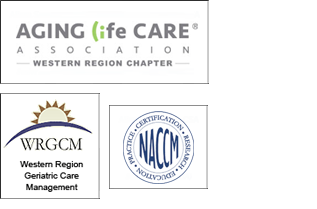5 Ways to Cut Elder-Care Costs
By Lisa Scherzer
Published: February 13, 2009
THE SO-CALLED SANDWICH GENERATION—those caring for their children and their aging parents—are being squeezed more than ever these days.
The retirement savings their parents were depending on are being decimated, while health care and other costs associated with caring for them skyrocket. Add to that steep college tuition bills and the strain on the family budget is, well…overwhelming. According to a 2005 Pew Research Center report, 13% of baby boomers (about 9.75 million) are in such a situation.
On average, these informal caregivers who take care of an elderly friend or relative spend $5,500 a year just on the day-to-day expenses like food and doctor visits, according to a 2007 study by the National Alliance for Caregiving and Evercare, a health-care coordination program. Should that elderly parent need to be put in a full-time facility, the costs rise exponentially. The average annual cost of a semi-private room in a nursing home is $69,715, while the average cost of an assisted living facility is $36,372 a year, according to a 2008 MetLife survey.
Don’t expect much help from the government or insurers. Medicare will only cover the total cost of staying in a skilled nursing facility for up to 20 days and won’t cover the cost of an assisted-living facility or home care at all, says Mary Winners, owner of About Senior Solutions, a referral service and advocacy organization in Monrovia, Calif.
In fact, without long-term-care insurance, which typically covers the cost of nursing homes, assisted-living facilities and in-house care, the last years of a senior’s life can be financially devastating for everyone involved.
To help you better manage the costs of caring for an elderly loved one, follow these tips.
Negotiate
It never hurts to ask. Try negotiating on price with a facility, especially if they aren’t filled to capacity. “It’s worth having that conversation, particularly if your parent is already there and they’d have to move out,” says Donna Schempp, program director for Family Caregiver Alliance a nonprofit.
Offer to share a room
Some assisted-living facilities set aside a certain number of shared rooms for lower-income seniors who can’t afford the full fee, says Schempp.
Winners, the owner of About Senior Solutions, says she knows of some facilities that may charge as low as $1,300 to $1,700 (per person) for a shared room, when a private-room rate would be $2,500 to $3,500.
Hire a geriatric-care manager
A geriatric-care manager can do everything from assessing your parent’s long-term care needs and finding them a place to live to helping you navigate the oh-so-complicated health-care system. Not only that, but they can save you plenty of time and money—making their fees, which range from $80 to $200 an hour, a lot more palatable.
Say you live far away from your aging mother and she needs regular assistance. A manager may be better able to find a high-quality assisted-living facility near her home that’s subsidized by the community. “A care manager knows what’s out there” and can negotiate on your behalf, says Maryann Higgins, owner of Connections Inc., a geriatric-care management service in Sarasota County, Fla.
They can also serve as a much-needed mediator when family members are in conflict over an elderly relative’s care. That alone, can save you plenty of time—and headaches, says Donna Wagner, director of the gerontology program at Towson University.
Search the National Association of Professional Geriatric Care Managers’ site to find a manager in your area.
Adult day care
If you work during the day and your parent can’t be left home alone, enrolling them in an adult day care is a more affordable option than private, in-home care. Fees for adult day services vary, but the national average rate is $64 a day, compared with an hourly rate of $20 (or $160 for an eight-hour day) for home health aides, according to a 2008 MetLife study.
Contact your state’s department of aging to get recommended adult day care centers, or search the National Adult Day Services Association for centers by state here.
Hire a part-time caretaker
For seniors who don’t require close or full-time supervision, hiring someone to regularly check in and spend time with your elderly parent may be all you need. It could be a neighbor or someone from the local church. Or, if your mom or dad lives near a university, hire a student. While a college student probably won’t be able to provide health-care-type services, they can help out with the grocery shopping, cleaning and meal preparation, as well as provide companionship, says Wagner. The going rate? According to Wagner, students at Towson University charge about $15 an hour for such services.
Check with your local university, or faith-based organization (like Catholic Charities or Jewish Family Service), which have volunteers and planned activities for seniors. Another option: Offer to pay a friend or neighbor to check on your parent.


